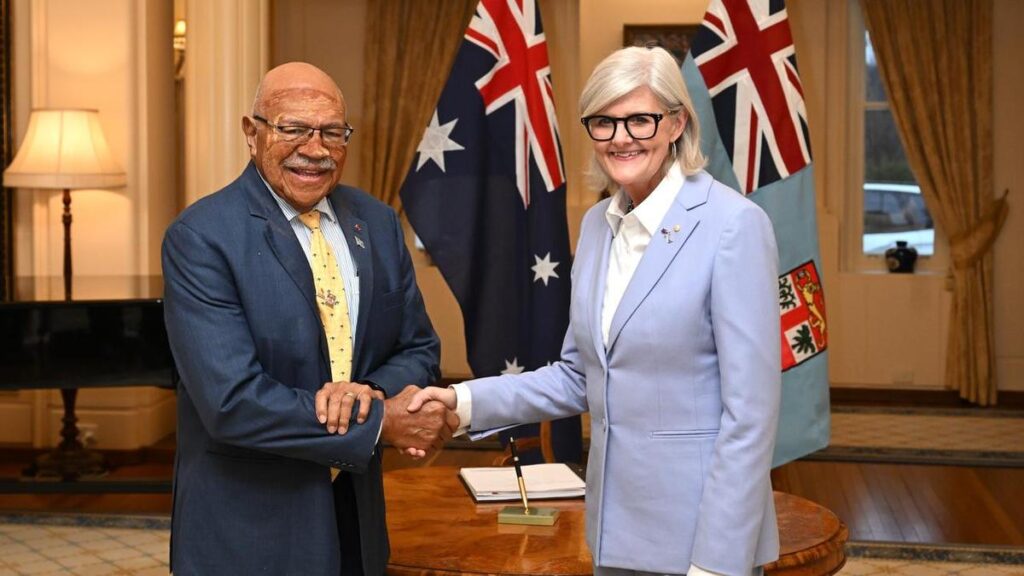
Amidst a backdrop of global uncertainty, Australian Prime Minister Anthony Albanese has underscored the importance of strengthening ties with Pacific nations. Speaking at a recent event, Albanese emphasized the shared interests and commonalities that bind Australia with its Pacific neighbors, highlighting the significance of these relationships in navigating challenging times.
Albanese’s remarks come as geopolitical tensions continue to rise, with the Pacific region becoming an increasingly strategic area of interest for major powers such as China and the United States. The Prime Minister stressed that fostering strong partnerships within the Pacific is crucial for regional stability and prosperity.
Building Bridges in the Pacific
The Australian government has been actively working to deepen its engagement with the Pacific Islands, recognizing the importance of collaboration on issues such as climate change, economic development, and security. In recent years, Australia has increased its aid and investment in the region, aiming to support sustainable growth and resilience among its island neighbors.
According to Albanese, the shared history and cultural ties between Australia and the Pacific nations provide a solid foundation for cooperation. “Our commonality is not just about geography,” he said. “It is about shared values and shared futures.”
Geopolitical Context and Challenges
The emphasis on Pacific relations comes at a time when China’s influence in the region is expanding. Beijing has been increasing its diplomatic and economic presence, offering infrastructure investments and development aid to several Pacific nations. This growing influence has prompted concerns among Western nations about the potential for increased geopolitical competition in the area.
Meanwhile, the United States has also been seeking to strengthen its alliances in the Pacific as part of its broader Indo-Pacific strategy. The U.S. has been collaborating with Australia and other regional partners to counterbalance China’s growing presence.
“The Pacific is not just a strategic chessboard. It is home to vibrant cultures and communities that deserve respect and partnership,” said a senior Australian diplomat.
Expert Opinions and Historical Parallels
Experts in international relations have noted that Australia’s approach to the Pacific is reminiscent of its historical role as a regional leader and partner. Dr. Sarah Collins, a lecturer in Pacific Studies, commented, “Australia has long been seen as a key player in the Pacific, and its renewed focus on these relationships is both timely and necessary.”
Historically, Australia’s engagement with the Pacific has been marked by periods of intense cooperation, particularly in times of global upheaval. The current geopolitical climate, with its shifting alliances and emerging threats, mirrors past challenges that have required strong regional partnerships.
Looking Ahead: Implications and Next Steps
The Australian government’s commitment to the Pacific is likely to continue evolving as new challenges and opportunities arise. Strengthening these relationships will require ongoing dialogue, investment, and a genuine commitment to mutual benefit.
In the coming months, Australia is expected to host several high-level meetings with Pacific leaders, further solidifying its role as a key partner in the region. These efforts will be crucial in ensuring that the Pacific remains a zone of peace and cooperation amidst a rapidly changing global landscape.
As Australia navigates these uncertain times, its focus on commonality and shared interests with Pacific nations will be a cornerstone of its foreign policy, reinforcing the bonds that unite the region.







